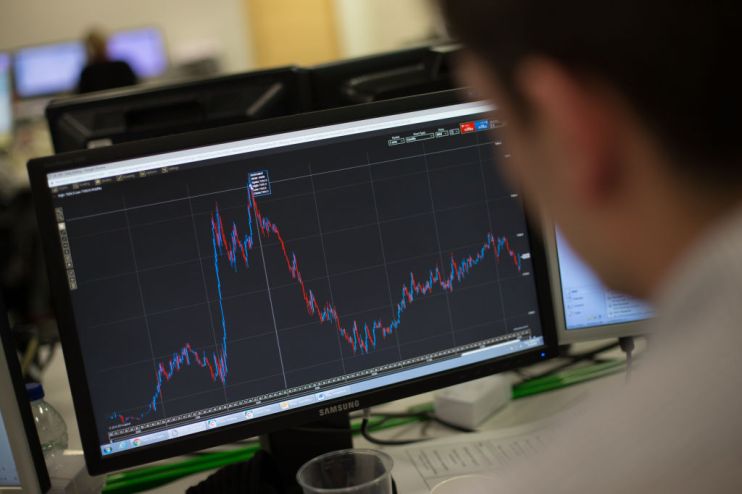Coronavirus: Retail funds might surprise the doomsayers

A month ago, it would have been near impossible to predict the speed with which markets returns would fall as investors reacted to a spate of lockdowns across Europe and the US. As more and more countries are caught in the grip of the COVID-19 pandemic, economic output in a number of sectors has effectively been put on ice.
The March Price Manufacturing Index survey data covering Europe, the US and the UK last week was stark, with some of the sharpest drops in manufacturing and service output ever seen.
February seems a lifetime ago but the Investment Association’s retail fund sales data – collected with a lag of four weeks – can tell us something about how investors might behave in future, as they started to process the news from China and other Asian economies and consider what it might mean for their portfolios.
The data show that whilst there was growing investor caution, there were equally few dents in investor confidence. Total net retail sales were £1.4 billion: to put this in context, the average monthly inflows for the previous 12 months were £1.6bn. February net sales were slightly below average but not by much. In short, UK retail investors were generally keeping calm and carrying on.
Notably, the flow of money into responsible investment funds looks resilient. They attracted £735 million in February, marking a second consecutive month of record sales. However many investors in these funds are not solely motivated by a desire for growth or income, and so we expect flows into these funds to behave differently even as returns and dividend payments are severely tested.
Creeping concerns about Asian markets appear to have had some impact in February, on the back of fears over falling capital market returns in Asia and supply chain disruption, as a result of measures designed to slow the spread of coronavirus.
This can be clearly seen in the over 35 fund sectors that the Investment Association looks at, which categorise approximately 3,000 funds to help savers navigate the fund market.
The Asia-focused sectors are relatively smaller than their UK, Global and US peers. However, money flowing out of China/Greater China funds equated to 2.2% of the total money managed in the sector, and Asia Pacific including Japan funds saw 2% of the total money managed in the sector flow out of it – the largest outflows in February as a proportion of a sector’s funds under management.
Investor focus will now undoubtedly move in March from Asia to Europe and the US, the new centres of the coronavirus outbreak.
While we don’t have that data yet, we believe they were sitting tight, understandably focussing on other priorities such as adjusting to working from home and staying safe and healthy. Financial advisers are undoubtedly playing a significant role in helping investors take a long-term view.
There have been some immediate impacts on the fund market though. Unlike the experience in 2016, property fund suspensions were a result of uncertainty over property valuations, not a symptom of rising investor redemptions.
When so many people are prevented from going to work or visiting restaurants, hotels and shopping centres, there is a significant knock-on effect. Equally, there are fewer properties being bought and sold. All this creates a challenge for valuers.
News that companies are cutting or reducing dividends in March will understandably be concerning for the many investors who look to funds as a source of income, particularly in retirement.
At the IA, we have been clear we expect the boards of companies to take decisions on their dividends based on what is best for their business over the long-term, and what is sustainable in light of the current market conditions and business needs.
Importantly, we should not lose sight of the crucial role of dividends for the wider economy, so the situation should not be used as an opportunity by companies to rebase or reduce the dividend unnecessarily, and we would expect payments to restart as soon as prudently possible.
And if a company stops dividend payments, we would also ask companies to consider how this impacts executive pay too.
It remains to be seen how these changes to dividends will impact the fund market.
In February we had a glimpse of what was to come here as Chinese PMI data hit its lowest ever of 37.5. At that point, many analysts felt China would be far harder hit. China imposed a near total lockdown that seemed unthinkable in Europe, effectively cutting the Chinese economy off at the knees but for good reason.
Yet here we are in the UK in what feels like the eye of the storm and in a similar position a month later. China and other Asian markets are now ahead of us as they appear to start finding their way back to normality. Chinese PMI rebounded to 52 in March, indicating an expansion in output, albeit after a steep drop.
For now, we believe investors are keeping calm but we expect to see far lower levels of activity in our March data. The late March respite for markets may or may not be short lived as a new day brings a new set of data. Much now depends on how hard and how long a global recession will bite.